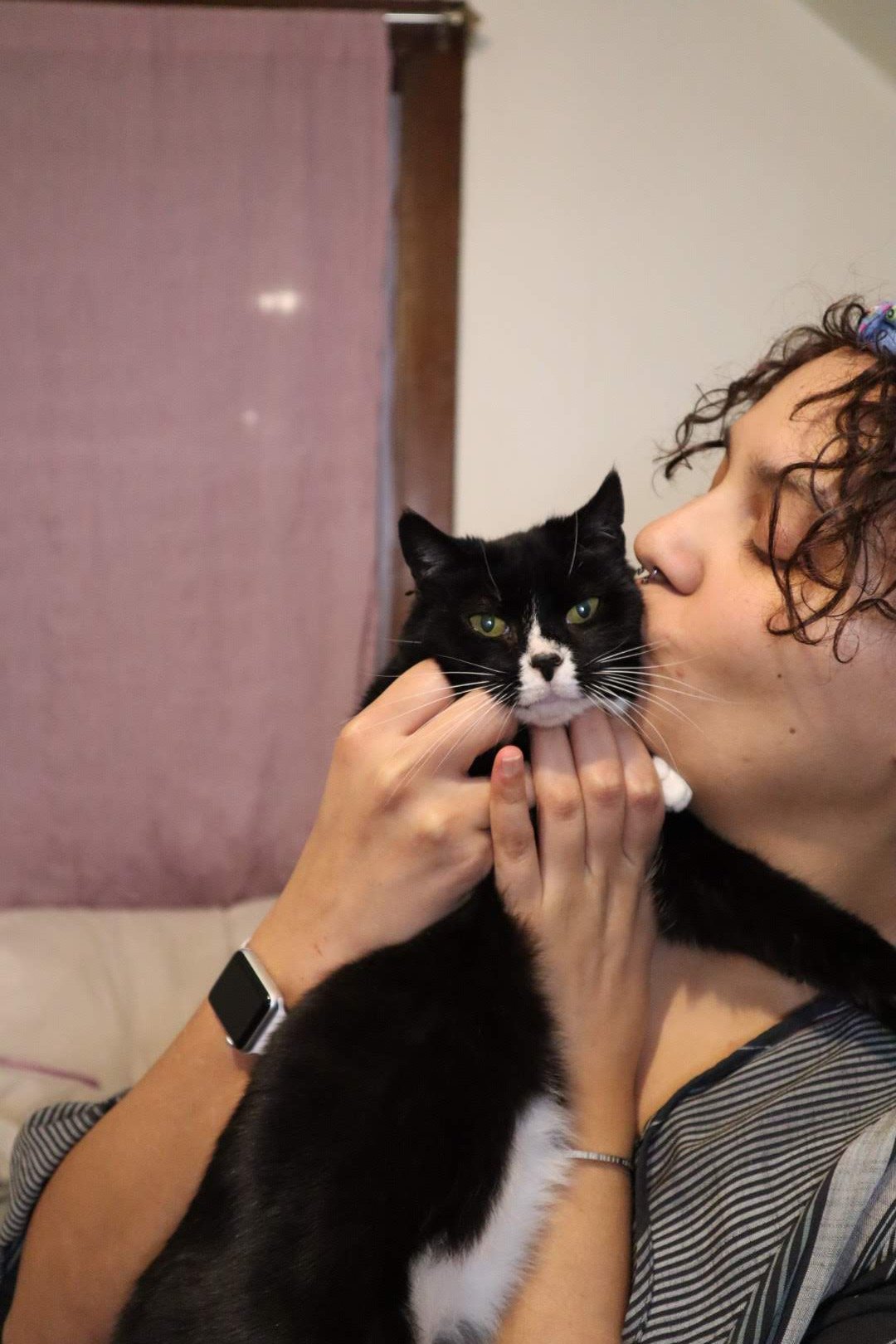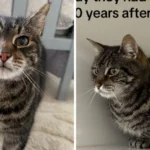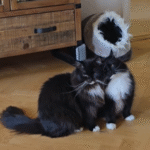Have you ever locked eyes with your cat and wondered, “What are you thinking about me?” It’s no secret that cats are mysterious creatures, often leaving us guessing about what’s going on in those clever little heads. Yet, behind every whisker twitch and slow blink, your cat is actually observing you very closely. They pick up on the smallest details—things you might not even notice about yourself! These subtle feline observations aren’t just curiosity; they are the foundation of trust between you and your furry friend. If you’ve ever wanted to get closer to your cat or simply understand what makes them feel truly safe, you’re in for a surprising and heartwarming journey. Let’s unravel the 10 things cats notice about you that quietly build the strongest bonds of trust.
Your Tone of Voice

Cats are incredibly tuned in to the way you speak. It’s not just about the words you use, but the softness, excitement, or frustration in your voice. If you speak gently and calmly, your cat will likely relax and feel safe around you. On the other hand, if your voice is loud or harsh, it can make them anxious or wary. Imagine how you feel when someone yells at you—cats experience the same unease, maybe even more so because their hearing is so sensitive. Over time, your cat will associate your usual tone with either comfort or caution. By consistently using a soothing voice, you help your cat trust that you are not a threat. Cats notice the patterns in your voice, and gentle words go a long way in earning their trust.
Your Body Language

Cats are masters at reading body language, both feline and human. They notice if you approach them directly or make sudden movements. If you crouch down to their level and move slowly, your cat sees you as less intimidating. Stiff, towering postures can make you seem scary, while relaxed, open gestures feel more welcoming. Even crossing your arms or staring too intensely can make your cat uneasy. Cats often mirror your comfort level, so when you appear calm and gentle, they’re more likely to trust you. Over time, your body language signals to your cat that you are a friend, not a foe, and this silent communication is powerful in building a deep bond.
Your Scent

For cats, smell is everything. Your unique scent is like your signature to them, woven into their world from your skin, hair, and even your clothes. When your cat rubs against you or curls up on your belongings, they are mingling your scent with theirs—a sign of true affection and trust. If you frequently change perfumes or use strong-smelling products, your cat might become confused or even wary. They use scent to recognize you, to feel at home, and to know that you are “part of their territory.” The more familiar and consistent your scent, the more your cat feels they can trust you. This is why they love sleeping on your favorite sweater; it’s comfort in its purest form.
Your Routine

Cats are creatures of habit and they notice your daily patterns. Whether it’s the time you wake up, feed them, or get home from work, your consistency offers them security. If you suddenly change your routine, your cat may become stressed or anxious. They trust people who provide stability—knowing when to expect meals, playtime, or cuddles helps them feel safe. Even the sound of your footsteps or the way you open a door becomes part of their trusted environment. By respecting their need for predictability, you show your cat that you are reliable, which is a cornerstone of trust in the feline world.
How You Handle Them

Cats remember how you touch and handle them. Gentle, slow pets and respect for their boundaries make them feel secure. If you pick them up roughly or force them to stay when they want to go, they’ll lose trust. Over time, cats learn who respects their comfort zones. Even if you’re excited to cuddle, it’s important to let your cat come to you on their terms. When you’re patient and handle them with care, your cat learns that you’re trustworthy. This mutual respect is key; a cat that knows it can say “no” is a cat that feels safe and loved.
How You React to Their Communication

Cats communicate in subtle ways—meows, purrs, tail flicks, and blinks. When you pay attention and respond to these signals, your cat feels understood. Ignoring or misreading their cues can cause frustration or fear. If your cat rubs against you or shows their belly, and you respond positively, you’re reinforcing their trust. On the flip side, reacting negatively to their attempts at communication can make them withdraw. Cats notice who listens and who doesn’t. By showing that you hear and respect what they’re trying to say, you build a bridge of trust that grows stronger with every interaction.
Your Emotional State

Believe it or not, cats are emotional detectives. They sense your mood—whether you’re happy, stressed, or sad. When you’re calm and happy, your cat will mirror that state and feel more at ease. If you’re upset or anxious, your cat might hide or act out. Cats pick up on the energy in the room and adjust their behavior accordingly. Sometimes, when you’re sad, your cat might curl up beside you, quietly offering comfort. They trust people who provide a peaceful and loving environment. Your emotional stability helps your cat feel that their world is safe and predictable.
Your Attention and Presence

Cats notice when you give them genuine attention. It’s not just about feeding them, but spending quality time—playing, talking, or simply sitting together. If you’re distracted or always on your phone, your cat might feel neglected. On the other hand, if you make time just for them, your cat will sense that they’re important to you. Even short moments of focused interaction build their trust. Like people, cats thrive on feeling valued and included in your life. When they know you care enough to be present, it deepens their bond with you.
Your Response to Their Mistakes

Everyone makes mistakes, even cats—maybe they knock something over or scratch where they shouldn’t. How you react shapes the trust between you. If you yell or punish them, your cat may become afraid of you. But if you respond with patience and gentle redirection, they learn that mistakes don’t mean the end of love or safety. Cats remember kindness in tough moments. By handling their mishaps with understanding, you show your cat that your trust is unconditional. This creates a relationship based on forgiveness and mutual respect.
Your Willingness to Give Them Space

Sometimes, cats just need a little room. They appreciate people who let them come and go as they please, rather than chasing them down for attention. When you respect their need for alone time, your cat feels more comfortable and secure in your presence. This freedom allows them to choose when to interact, which is a huge trust-builder. It’s like having a friend who lets you be yourself without pressure. By giving your cat space, you show that you understand and respect their individuality—something every cat truly values.

Linnea is a born and bred Swede but spends as much time as possible in Cape Town, South Africa. This is mainly due to Cape Town’s extraordinary scenery, wildlife, and atmosphere (in other words, because Cape Town is heaven on earth.) That being said, Sweden’s majestic forests forever hold a special place in her heart. Linnea spends as much time as she can close to the ocean collecting sea shells or in the park admiring puppies.






